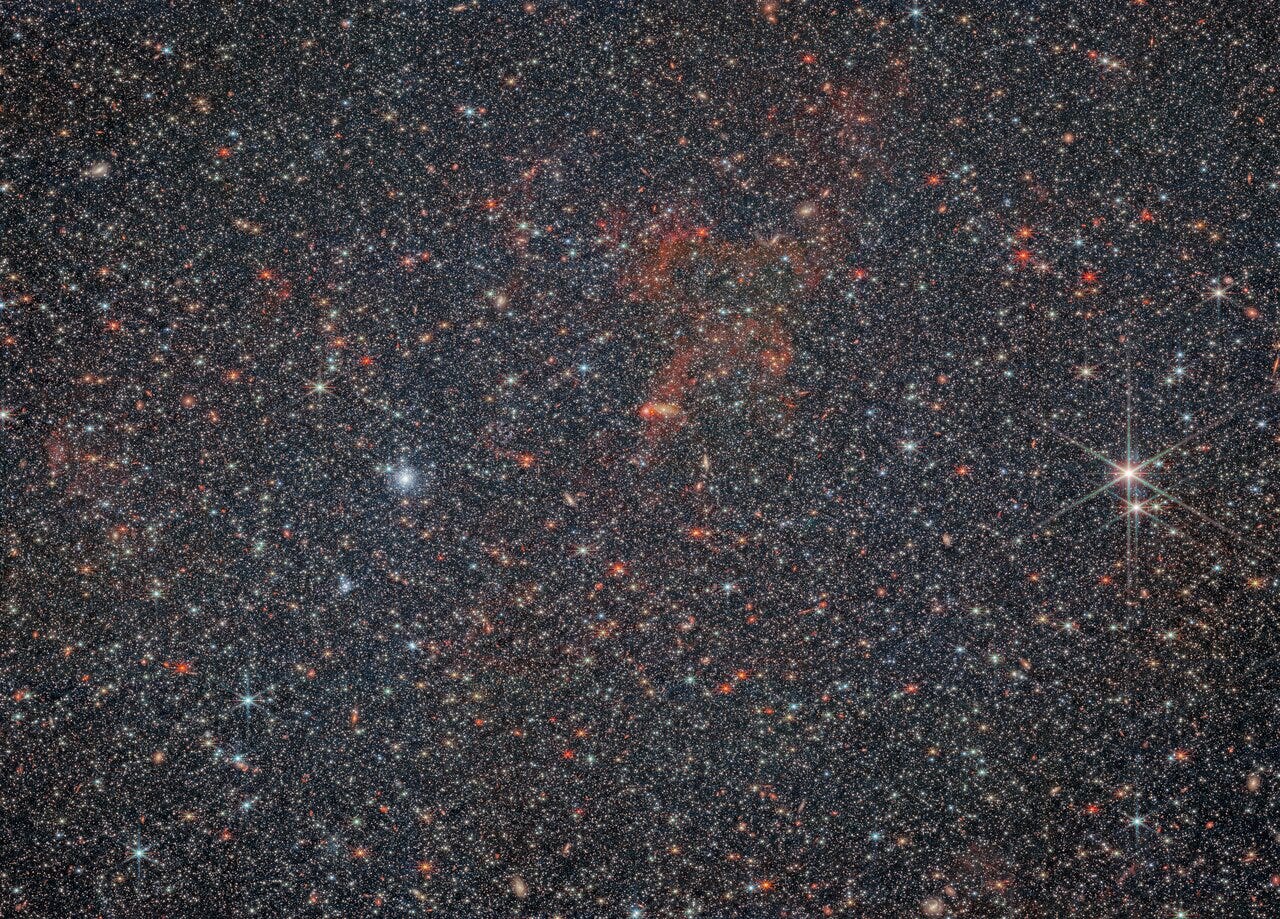On the stuff we can't see
On space telescopes, the rights of artificial intelligence, and why some modesty is in order about the meaning of life
With the Webb Space Telescope continuing to deliver utterly breathtaking and incomprehensible pictures of the Universe around us, scientists are gathering data that add up to information we've never had before. Examination of light reflected by planets orbiting faraway stars, for instance, has yielded evidence of chemical compounds never previously detected on planets outside our Solar System.
■ But one of the assumptions that underlies the research is that the laws of physics must be the same throughout the Universe. It seems like a fair and proper assumption, given what we know about the building blocks of the natural world. But if it is true (and we seem to lack any evidence that it is not), then a supremely important question ensues: By what mechanism is the information of those laws transmitted, and what enforces them in all places at all times?
■ Whatever else you may think of cosmology, the existence of that question strongly suggests that there is a dimension to existence as we know it that isn't subject to material limitations. Nobody has to tell two atoms in a remote corner of a distant galaxy that they must exert gravitational force on one another; they just do.
■ Yet those atoms aren't aware of the force (lacking sentience) and make no choice to obey the law of gravity (lacking free will). We cannot just hand-wave away the fact that so many trillions of particles "know" the same thing at the same time. Information itself plainly exists, and doesn't appear to be subject to the same laws that affect things in the material planes of existence.
■ To take that a step further: If every particle in the Universe is attracting every other particle in the Universe at the same time, then every human life is incorporated into what one might call the "source code" of the Universe from that life forward. No matter how immeasurably small the effect, that life sets off consequences that become part of the information architecture of everything that exists later, again transmitted instantaneously and everywhere.
■ The thought is heavy, but it can also be reassuring: Scientifically, we don't understand what initiates consciousness (and, thanks to the emergence of artificial intelligence, that's becoming a matter where our ignorance is of growing consequence), any more than we know what happens to that consciousness after physical death.
■ Around Halloween in particular, we talk about remembering the dead, but in an undeniable sense -- if the laws of physics are indeed true always and everywhere -- then the Universe "remembers" us all by transmitting the consequences of our actions. Notwithstanding any spiritual beliefs on the subject, that really highlights how much we have yet to figure out about whatever dimensions of the Universe are transmitting information and enforcing rules all around us.



